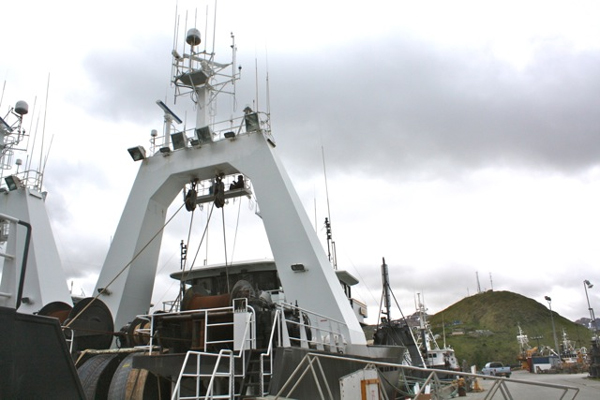
As the Bering Sea’s largest fishery opened on Tuesday, pollock fishermen were looking forward to a strong B season. They were also wading through a tide of criticism from rural users, who believe the industry’s catching too much salmon.
Brent Paine represents more than 70 pollock trawlers for United Catcher Boats.
“I think a lot of the cooperatives are going to start early — like right now or this week — because of their concern for Chinook salmon bycatch,” Paine said. “That tends to increase in the later part of the B season.”
On top of that, many vessels will be using excluder nets to let salmon escape. And Paine says they’ll all participate in the rolling hotspot closure program — avoiding areas where other trawlers have run into high concentrations of salmon.
But those tactics aren’t enough to relieve tension between commercial and subsistence fishermen. It came to a head last week, when the North Pacific Fishery Management Council met in Nome.
“It was probably one of the toughest meetings I’ve attended in 20 years,” Paine said.
The council heard hours of testimony from western Alaskans. Many of them are facing closures and restrictions on fishing this summer because of poor salmon returns. And many were upset that commercial fishermen haven’t been asked to cut back on bycatch in the same way.
Ben Stevens is a Koyukon Athabascan. As KNOM reported, Stevens traveled almost 500 miles from the Upper Yukon to speak at the council meeting.
“I would like to demand of you some courage to help us stem this tide,” Steven said. “Because it’s happening to us. The fact of the matter is the fish are going away and we need help. You guys are it.”
The North Pacific council agreed to take a closer look at a few options for reducing bycatch. They may expand the incentive-based program for avoiding salmon in the trawl fleet, and they may adjust the hard cap on salmon taken as bycatch.
The council isn’t expected to revisit the issue until late in the year — after the pollock B season ends in October.
KNOM’s Matthew Smith contributed to this report.




